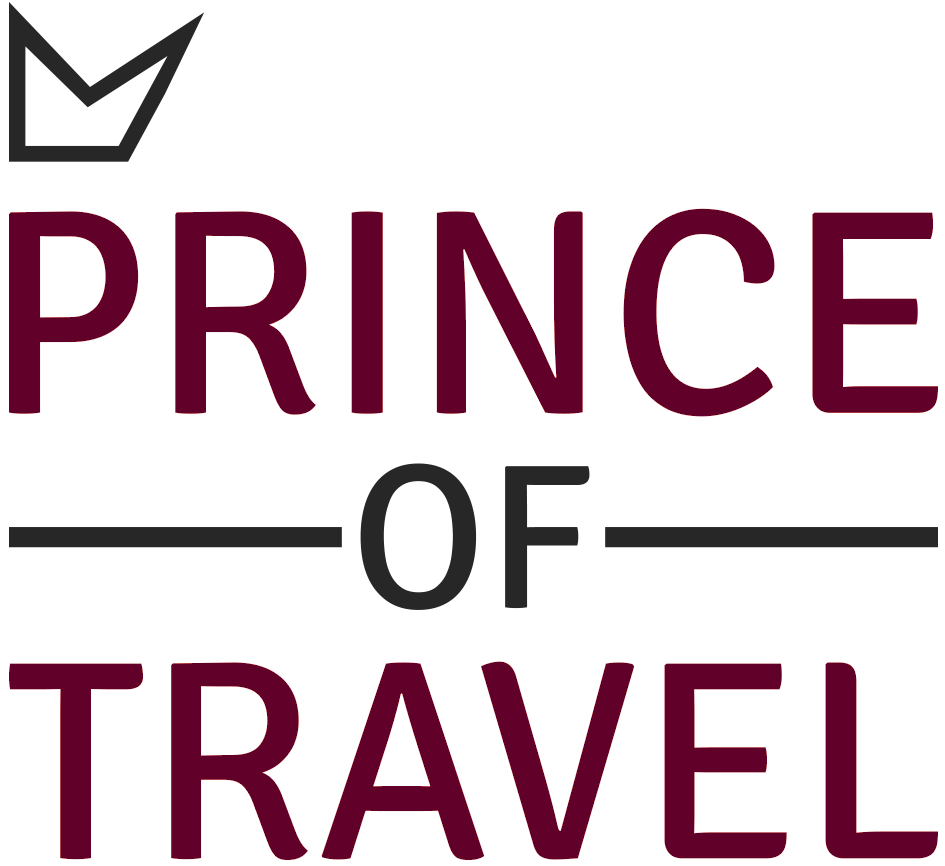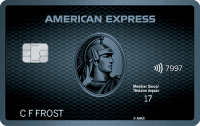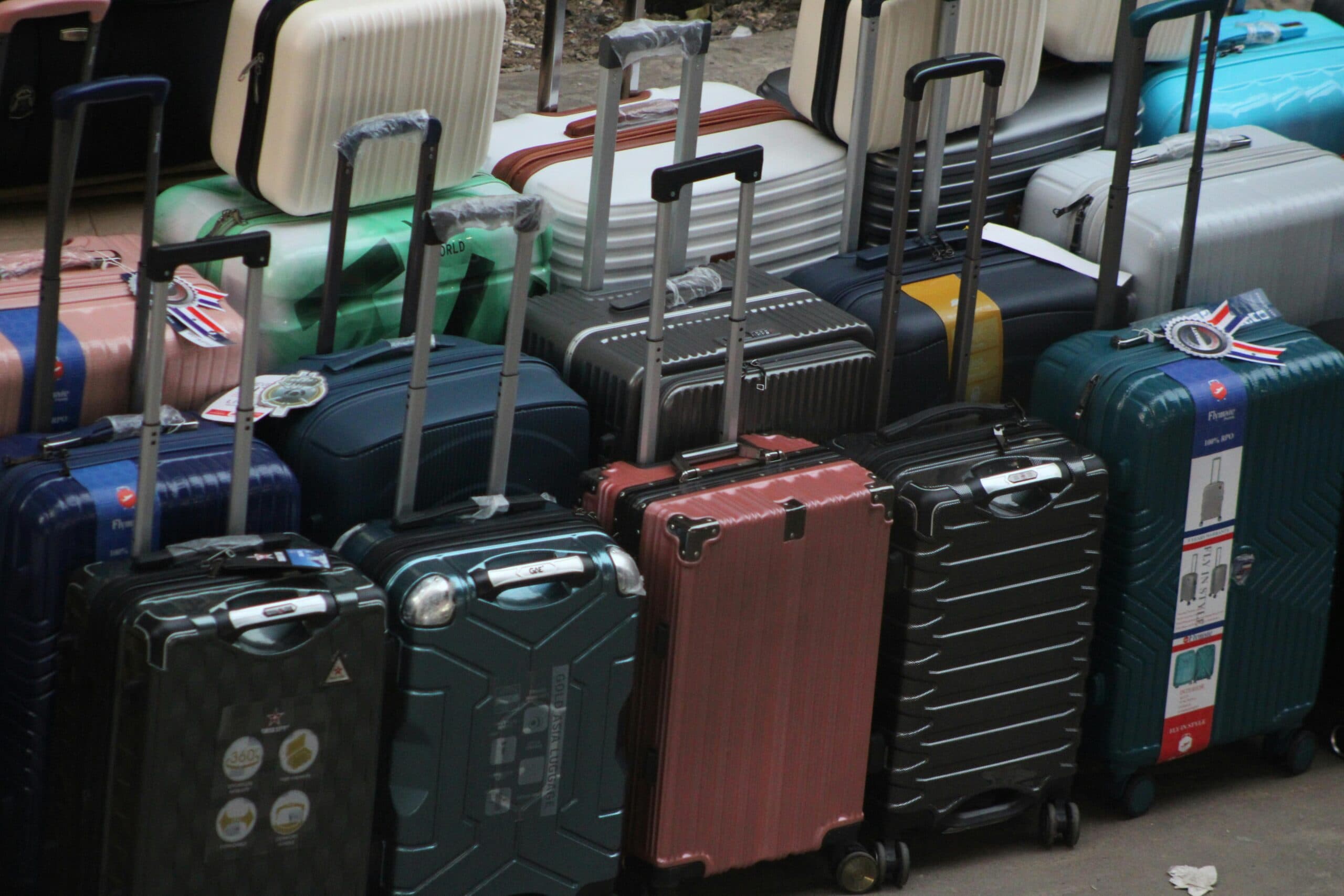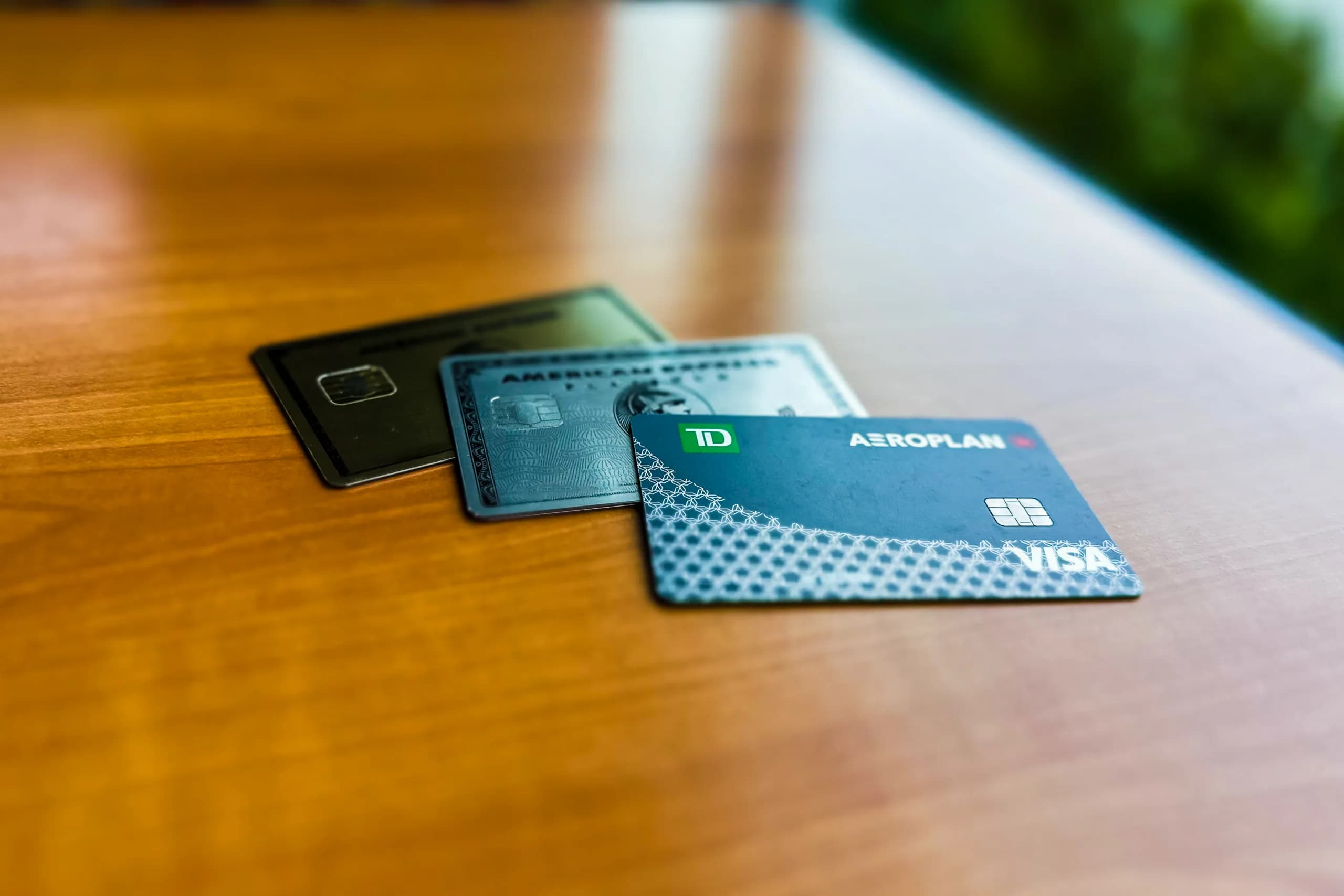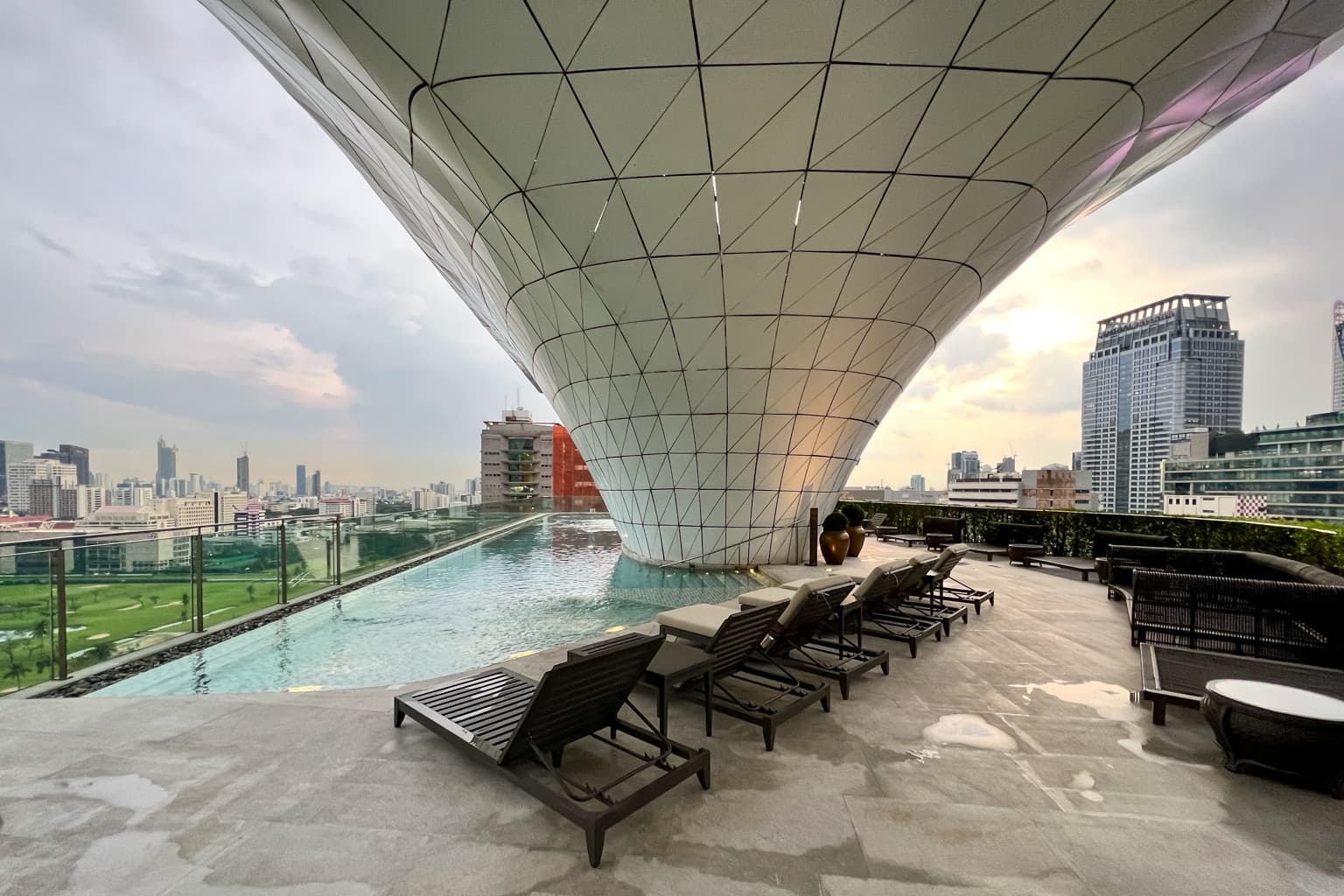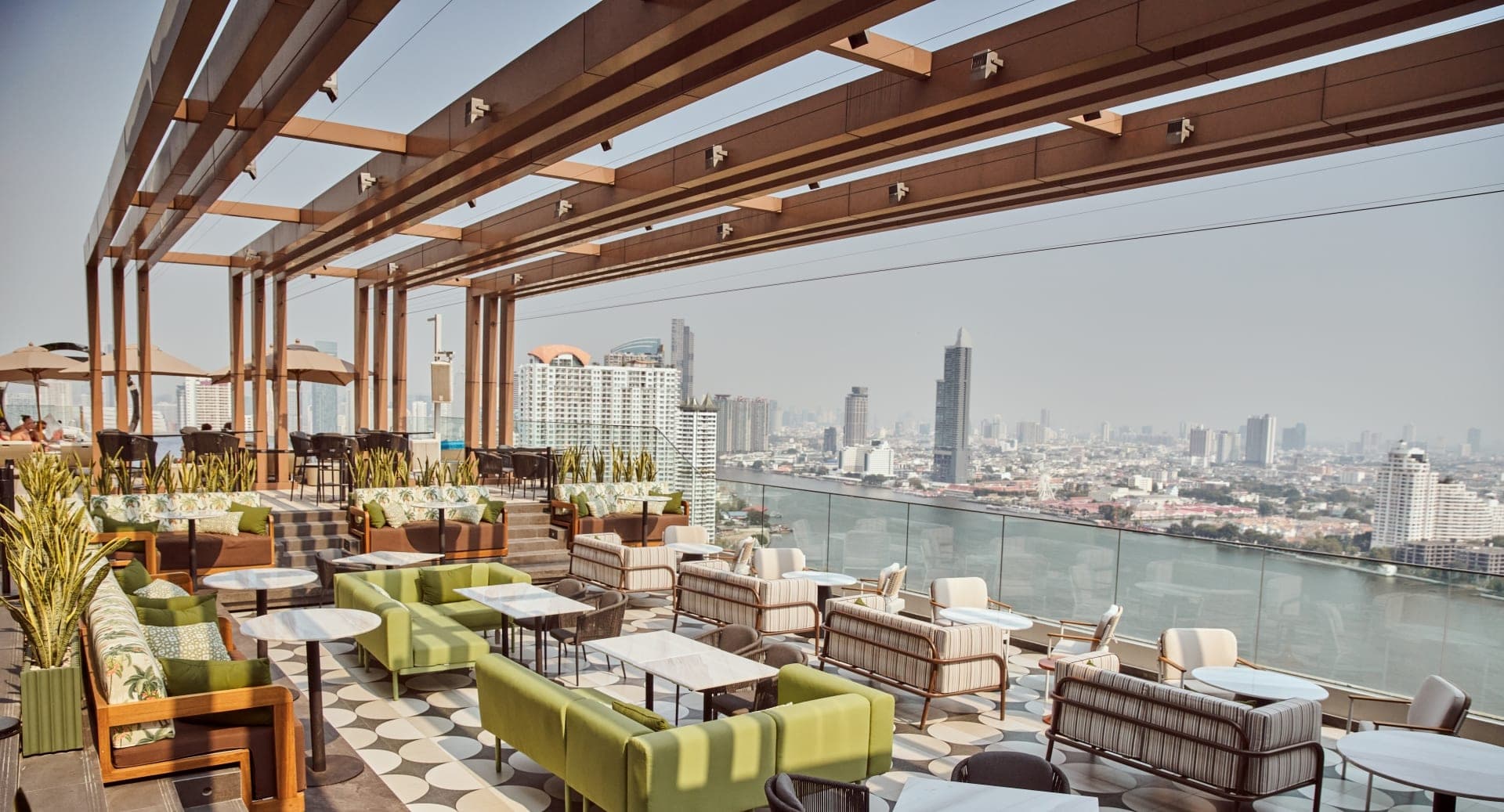24-Hour Layover: Bangkok

Our time in Bangkok was short and sweet, and we tried our best to make the most of the quick day-and-a-half stay we had in the city. Given the short duration of my visit, I figured it would be best to draw upon my own experiences and continue the 24-Hour Layover series with a focus on Bangkok.
7am | Head into the City
Grab a quick hotel breakfast and make your way into central Bangkok, where most of the stuff that’s worth seeing is located. Both taxis and Uber are extremely cheap in Thailand, so it’s definitely worthwhile to hail a ride.
If you call a taxi, DO NOT negotiate with the driver over the price. It’s a real shame that it’s a common practice among Bangkok taxi drivers try to rip off unsuspecting tourists by keeping the meter off, instead referencing a “standard” price for certain distances that they keep mounted on the backseat. Don’t let yourself fall victim to this!
Instead, insist that they turn on the meter, as they’re obligated by law to do so. If you ask your hotel to call you a taxi, the concierge will usually do their best to make sure that the driver has their meter on, but make sure to double check once you’re inside the taxi!
9am | Grand Palace
The crown jewel of Bangkok and an absolute must-see, the Grand Palace is an awe-inspiring royal complex that serves as the official residence of the Thai monarchy. At a total area of 218,400 sq m, the enormous palace contains dozens of stunning buildings and pavilions set among sprawling open courtyards.
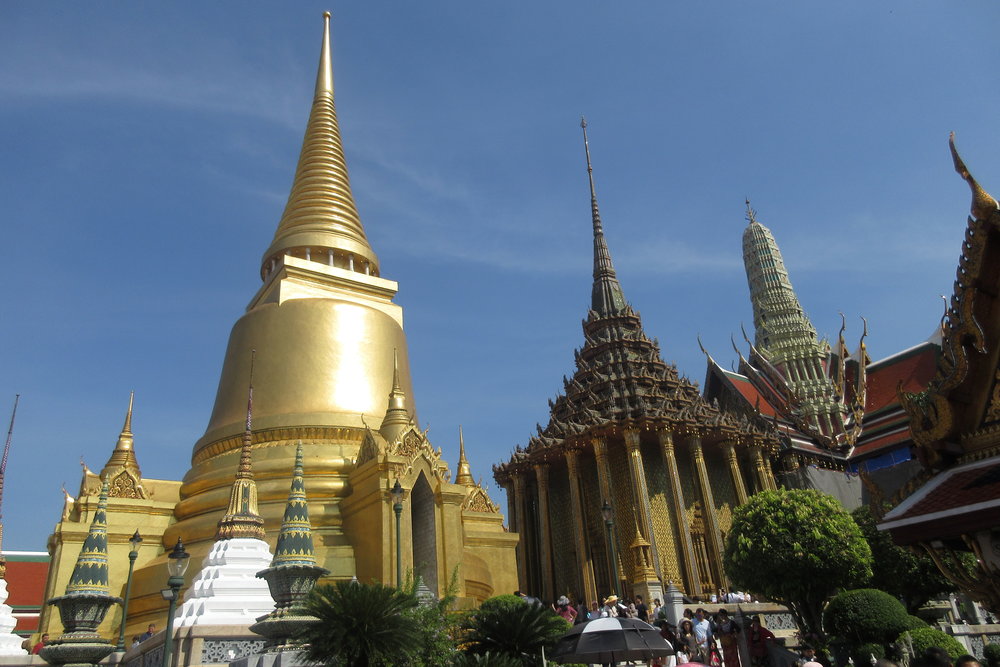
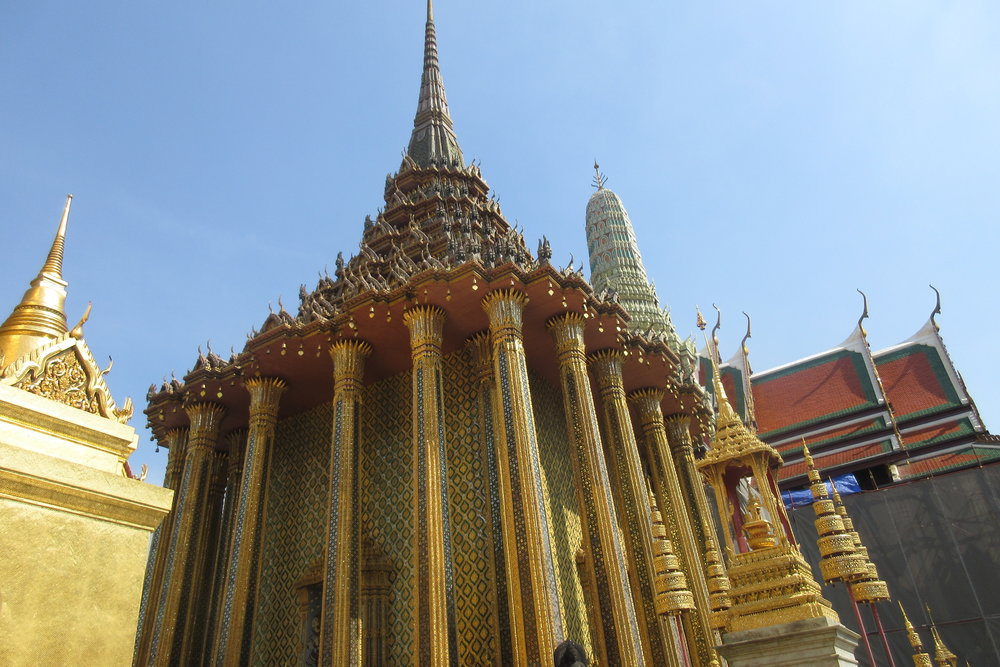
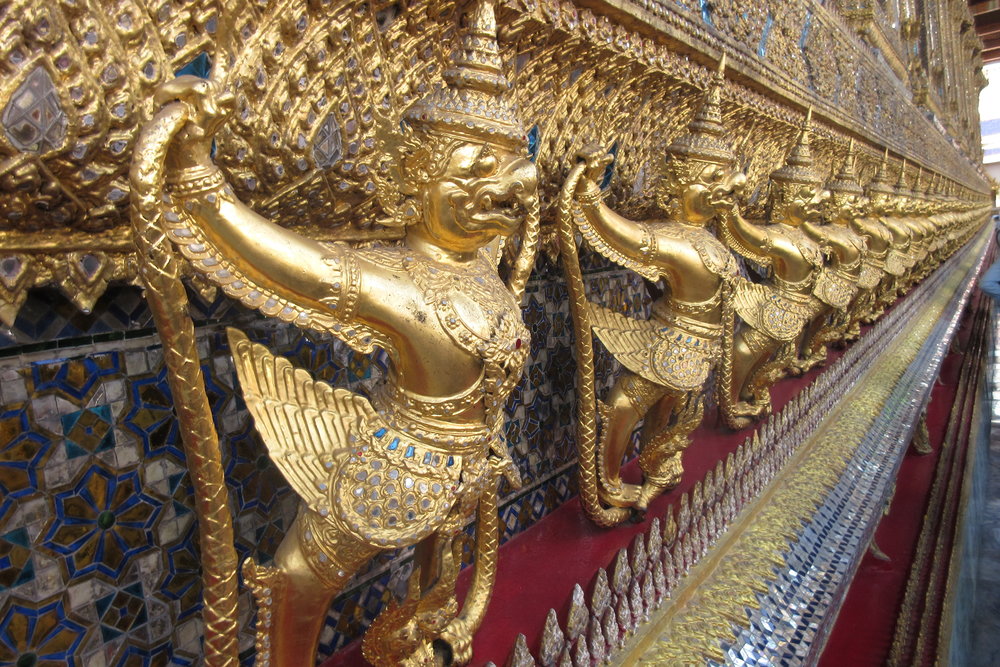
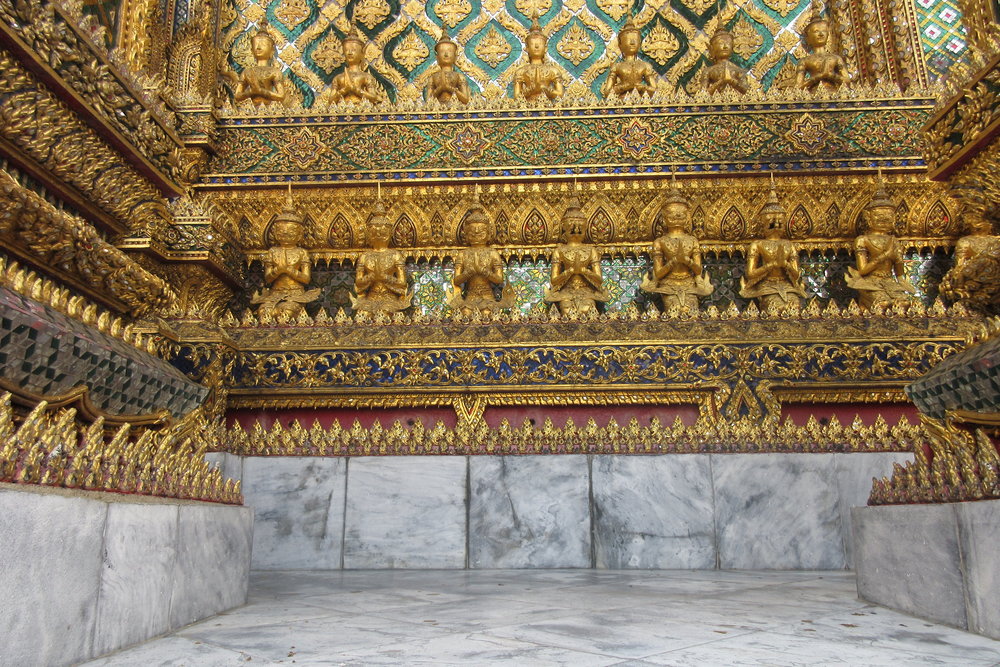
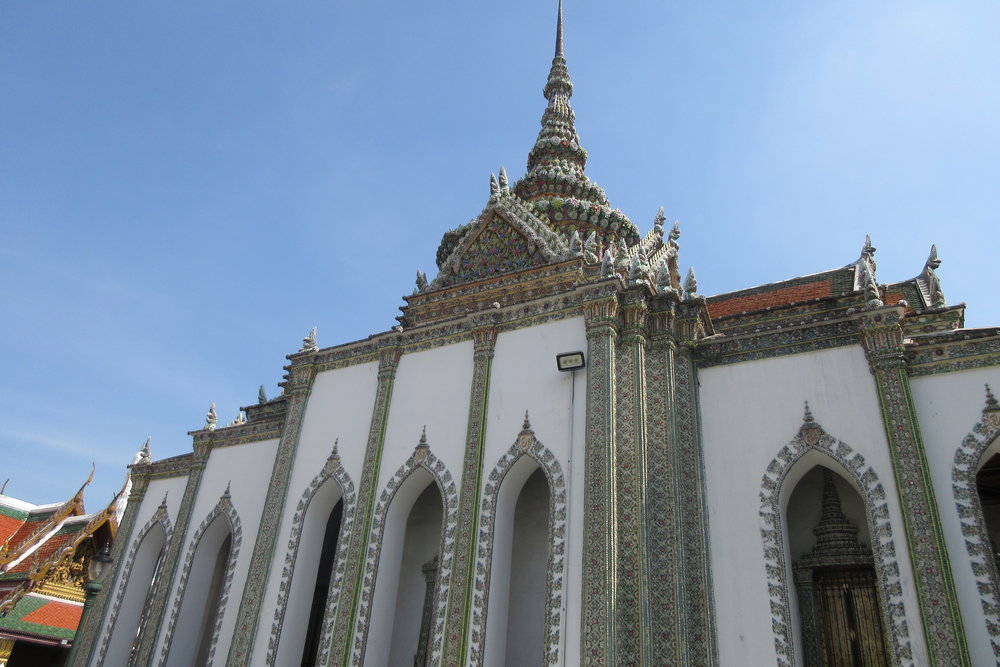
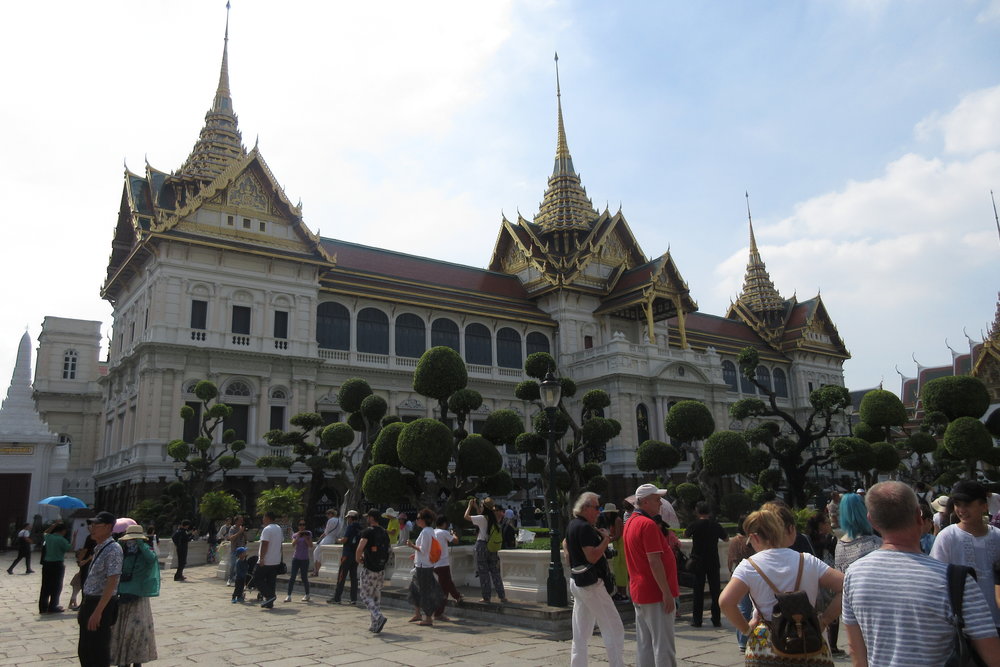
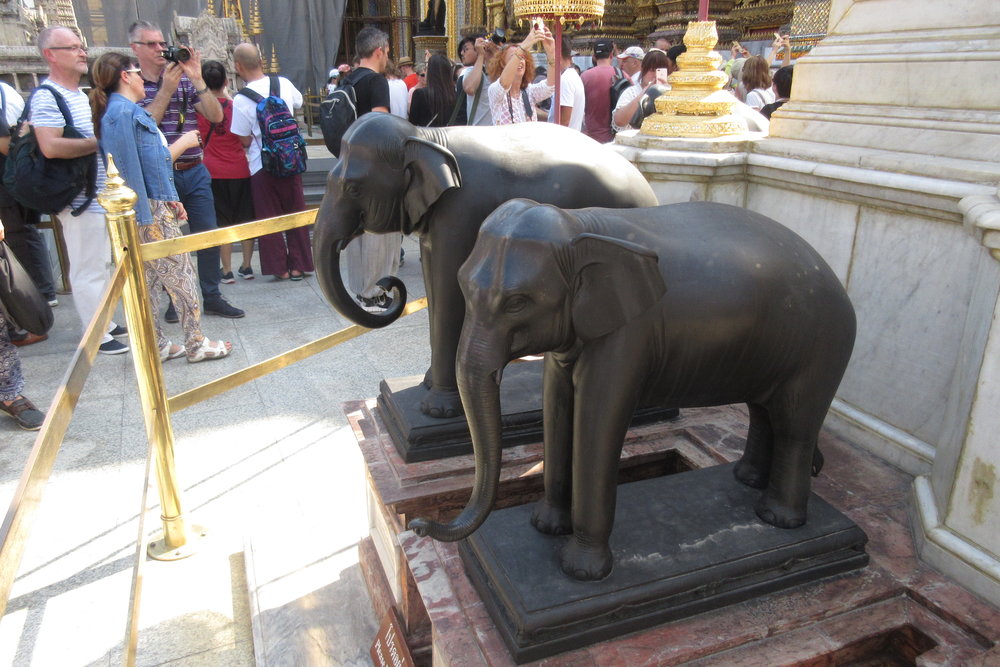
The palace was built in the 18th century at the behest of King Rama I, and its current form is reflects the work ordered by multiple successive reigning kings ever since. As a result, many of the buildings look very different from each other, although golden lacquer and colourful mosaics are recurring themes.
The palace serves as a museum for the outside world on royal life in Thailand, and the walking map guide is very helpful in providing information on what each building reflects about the king who conceived of it. Although the Royal Family no longer lives here, it’s still used for royal ceremonies and state functions throughout the year, and there’s still royal offices conducting day-to-day work on palace grounds.
12pm | Lunch on the Chao Phraya River
It’s a short walk from the Grand Palace to the banks of the Chao Phraya River, where an almighty market hall awaits you for lunch. Pad thai, barbecue, fish ball noodles, fresh tropical fruit – anything that tickles your fancy for a quick lunch.
If you’re interested in doing a boat tour and potentially visiting some of Thailand’s famous “floating markets” located in some of the Chao Phraya’s tributaries, you’ll find many tour operators willing to take you. Allocate an extra hour or two to immerse yourself in the frenzied hustle of the boat bazaars.
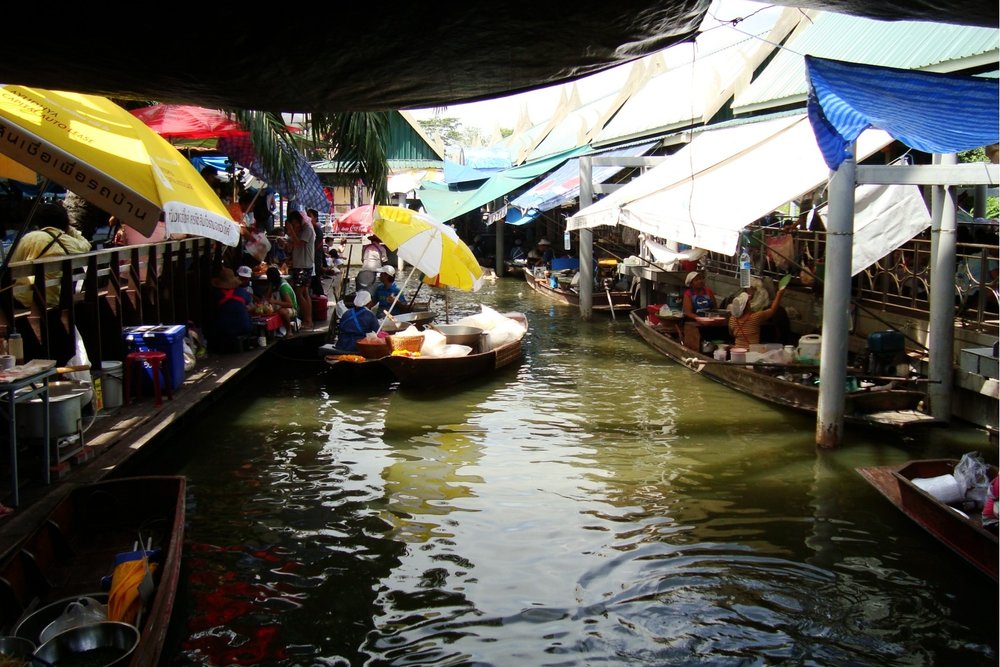
Taling Chan Floating Market, upstream on the Chao Phraya
2pm | Wat Pho
Wat Pho is probably Bangkok’s second most popular tourist attraction after the Grand Palace, and that makes for a much more peaceful, less crowded visit. Although also commissioned by King Rama I and looked after by successive kings (in particular King Rama III, who extensively expanded the temple), Wat Pho is primarily a place of Buddhist worship, housing over a dozen phras – individual Buddhist temples which, collectively, are home to Thailand’s largest collection of Buddha images.
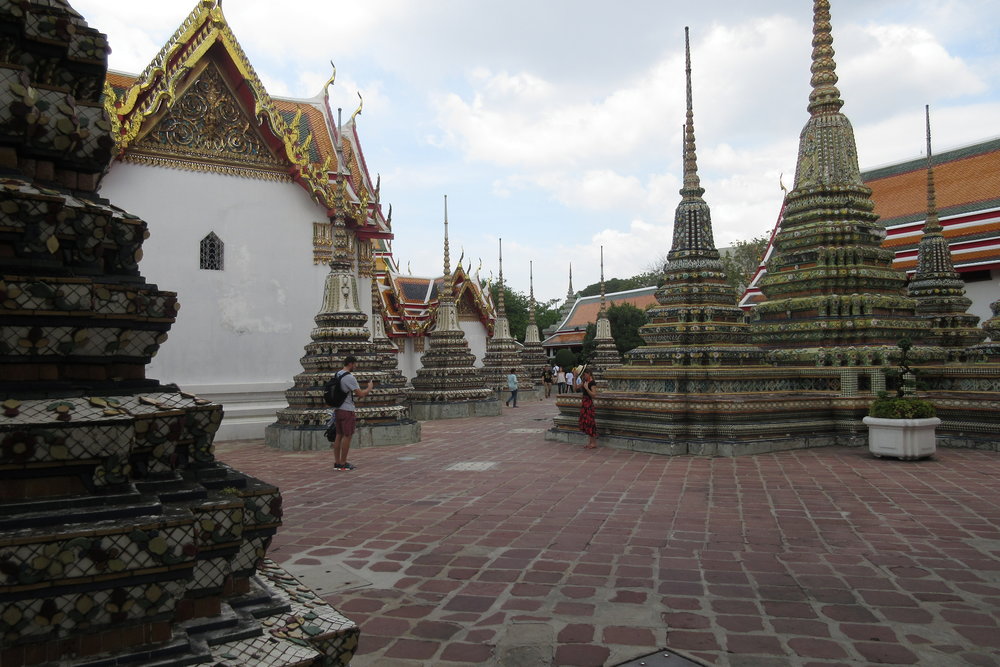
Wat Pho, Bangkok
The star attraction is the 46-meter-long reclining Buddha, whose sihasaiyas posture – also known as the “draw me like one your French girls” posture – represents the entry of Buddha into Nirvana. It’s a truly captivating sculpture that’s worth admiring from all angles.
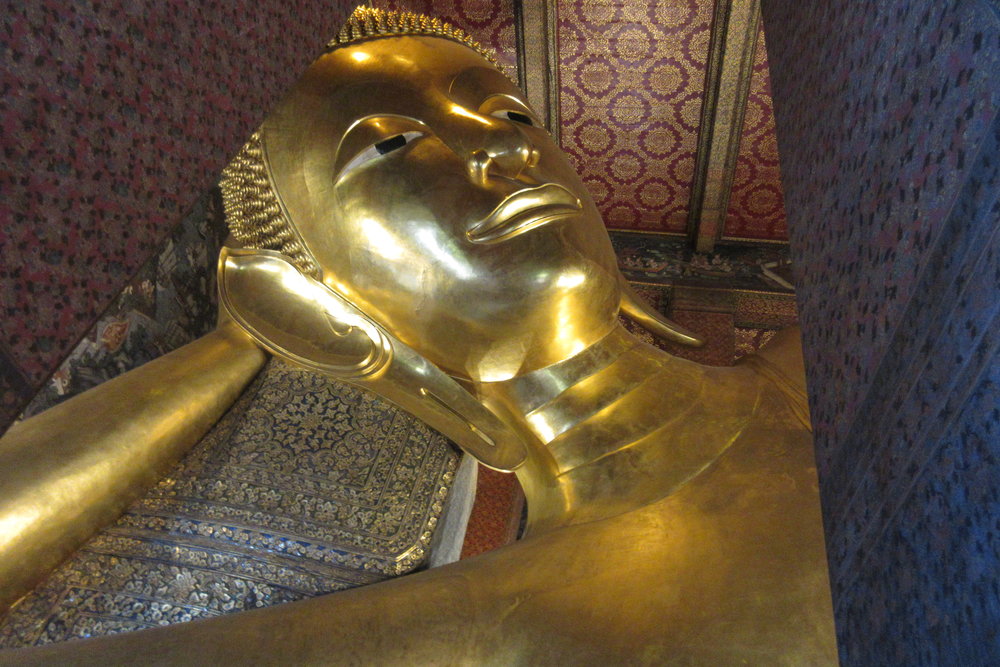
The Reclining Buddha
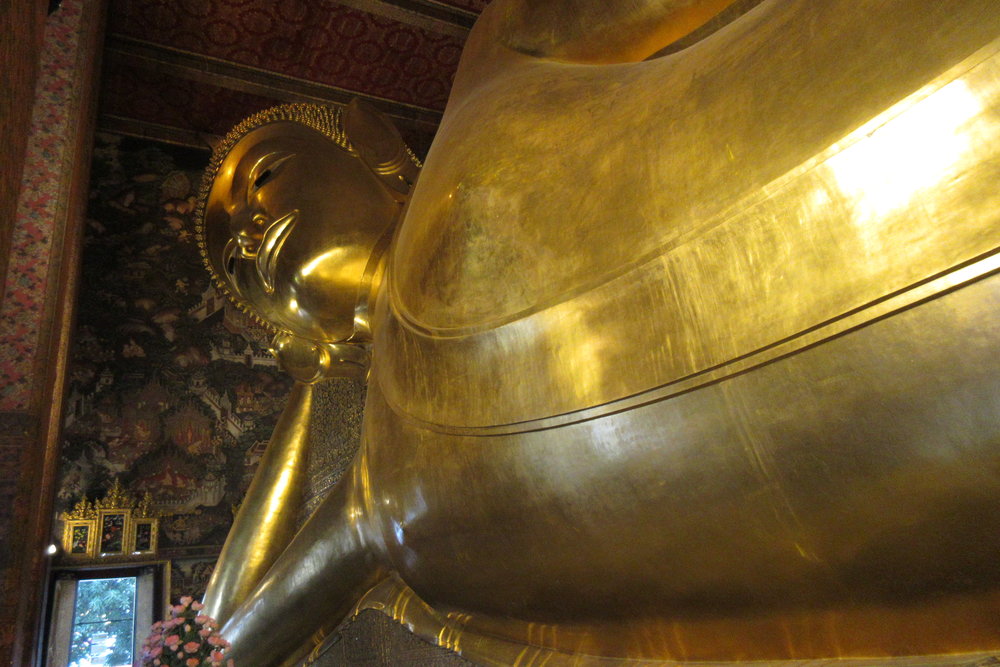
The Reclining Buddha
Don’t let the reclining Buddha take up all your attention, though, because the other Buddha images dotted in the various halls and pavilions all tell their own stories. Feel free to stroll through the temple at a leisurely pace with your guidebook in hand, slowly absorbing the sacred energy of the place and finding out what’s meant by the particular pose, expression, and accessories of each Buddha image.

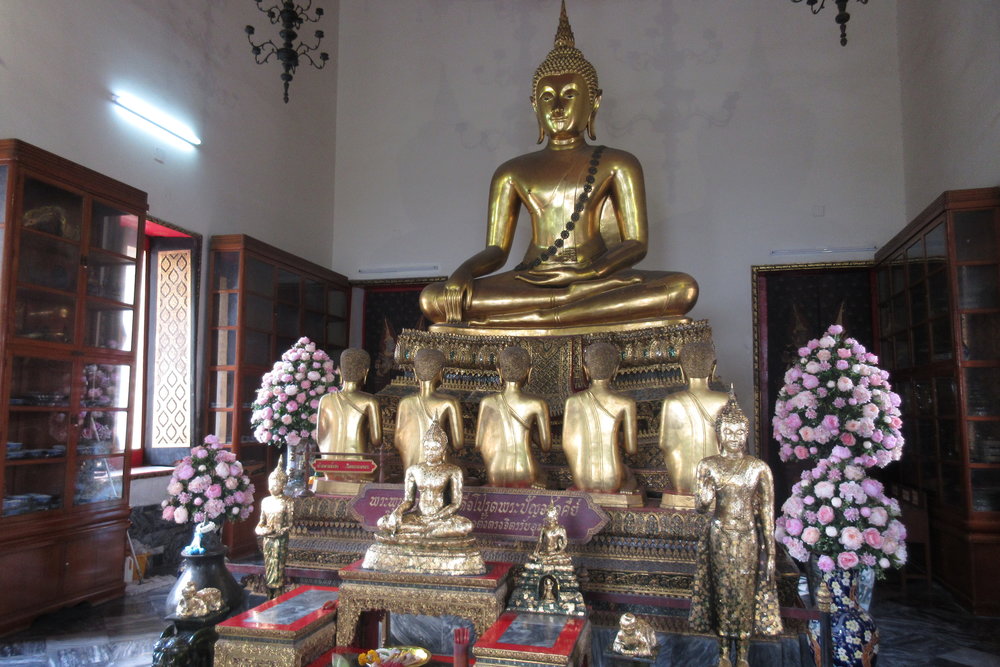
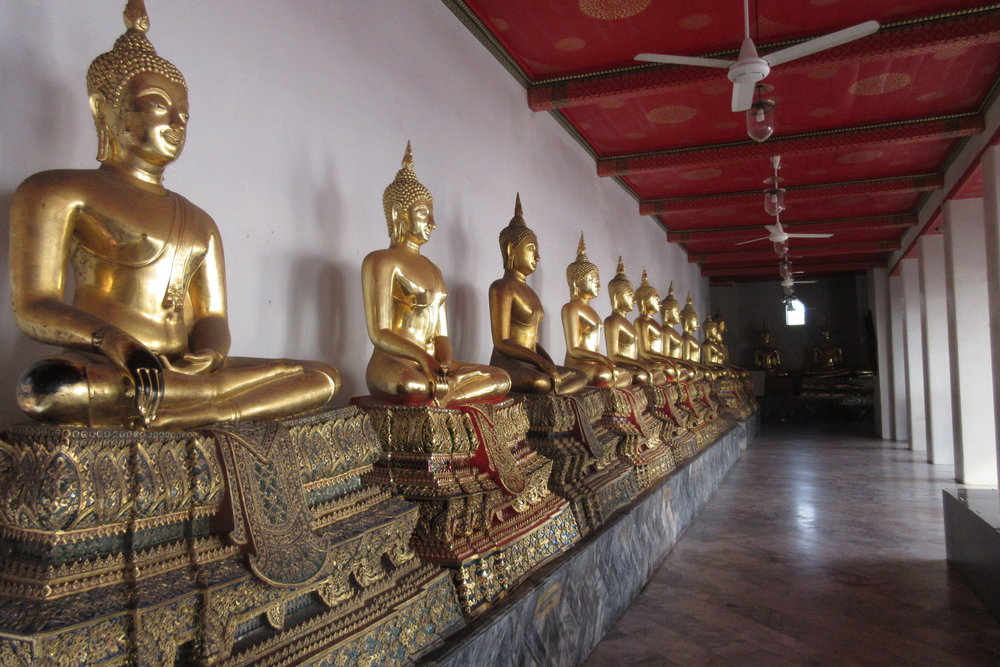
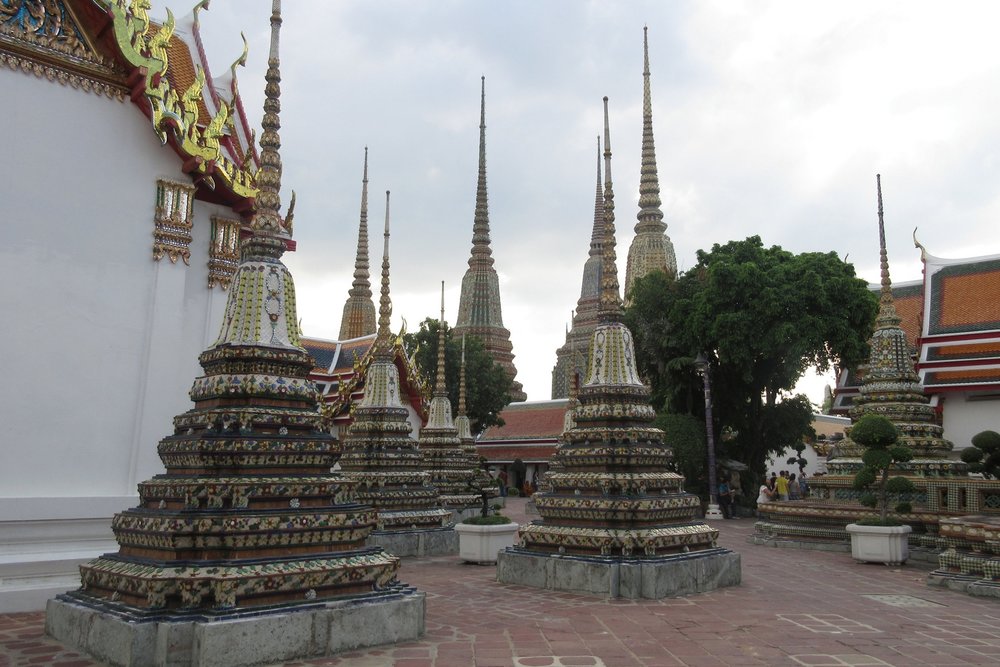
If you have time, I’d also recommend visiting Wat Arun, another beautiful Buddhist temple situated across the Chao Phraya from Wat Pho. Wat Arun recently underwent extensive restoration work, and its central feature is a 80-meter-tall Khmer-style tower encrusted with porcelain.
6pm | Night Markets
Some guides might point you in the direction of Khao San Road, but that place is beyond a tourist trap at this point. You’ll find little more than drinking establishments catered exclusively for foreign tourists and a logjam of street vendors looking to make a quick buck.
Instead, head to one of Bangkok’s vibrant night markets to get an authentic taste of life in one of South East Asia’s bustling capitals.
There’s the Rod Fai Market every Thursday through Sunday, where vintage stores and hip secondhand market stalls provide the perfect backdrop for an electric night of street food and cocktails. Then there’s the Suan Lum Night Bazaar that’s open all week, which is more focused on style, fashion, and art. You’ll find all sorts of colourful accessories, jewellery, and handmade souvenirs.
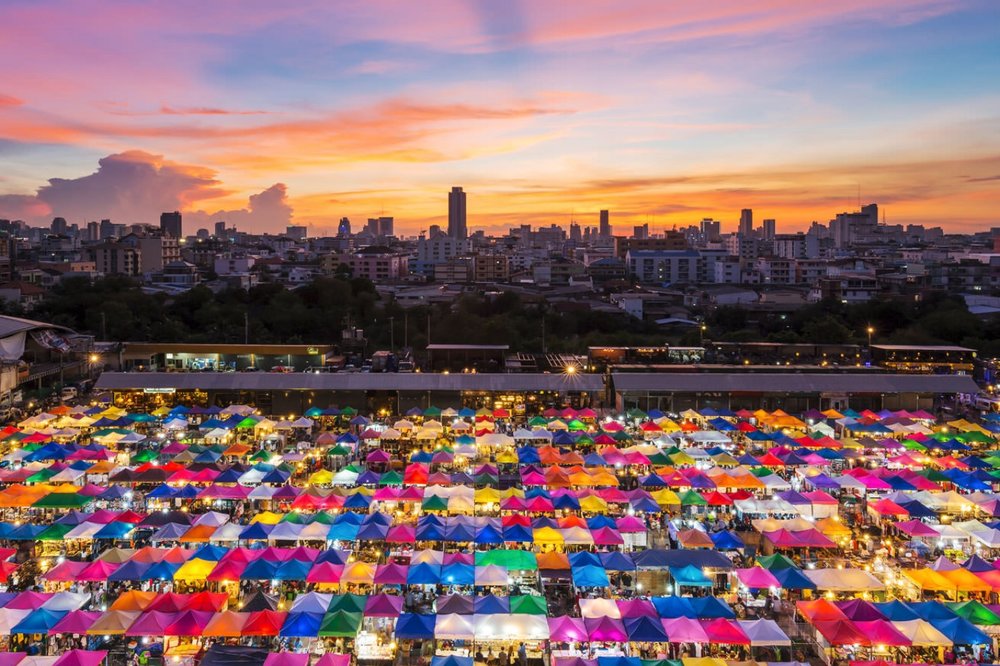
Rod Fai Night Market, Bangkok
Meanwhile, Patphong Night Market near Bangkok’s red-light district is extremely popular among tourists, so you might wish to drop by if fake luxury goods, tacky accessories, and “funny” T-shirts are your thing. You can also engage in other “traditional” pursuits among tourists in Thailand, such as attending a ladyboy cabaret or hitting up Nana Plaza, the self-proclaimed “largest adult playground in the world”, just a few blocks away.
Conclusion
I really wish I had more time in one of Asia’s great megacities. While 24 hours is just about enough to see the most impressive temples and palaces, it’s my impression that Bangkok is one of those places whose essence lies outside its premier tourist attractions, but is instead channeled through the “order in the chaos” of day-to-day life in the city. I hope to be back sooner rather than later to discover exactly that side of Bangkok.

First-year value
$336
Monthly fee: $15.99
• Earn 1,250 points per month upon spending $750 per month for 12 months
Earning rates
Key perks
- Transfer to airline and hotel partners
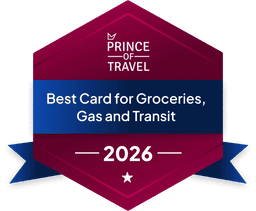
Monthly fee: $15.99
• Earn 1,250 points per month upon spending $750 per month for 12 months
Earning rates
Key perks
- Transfer to airline and hotel partners
